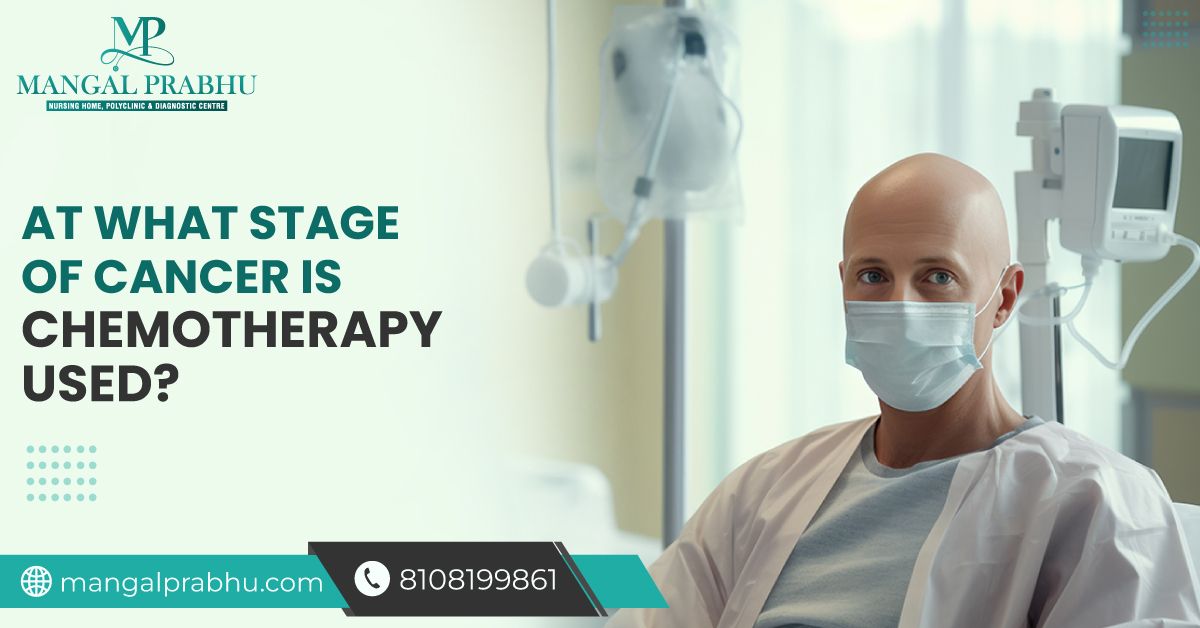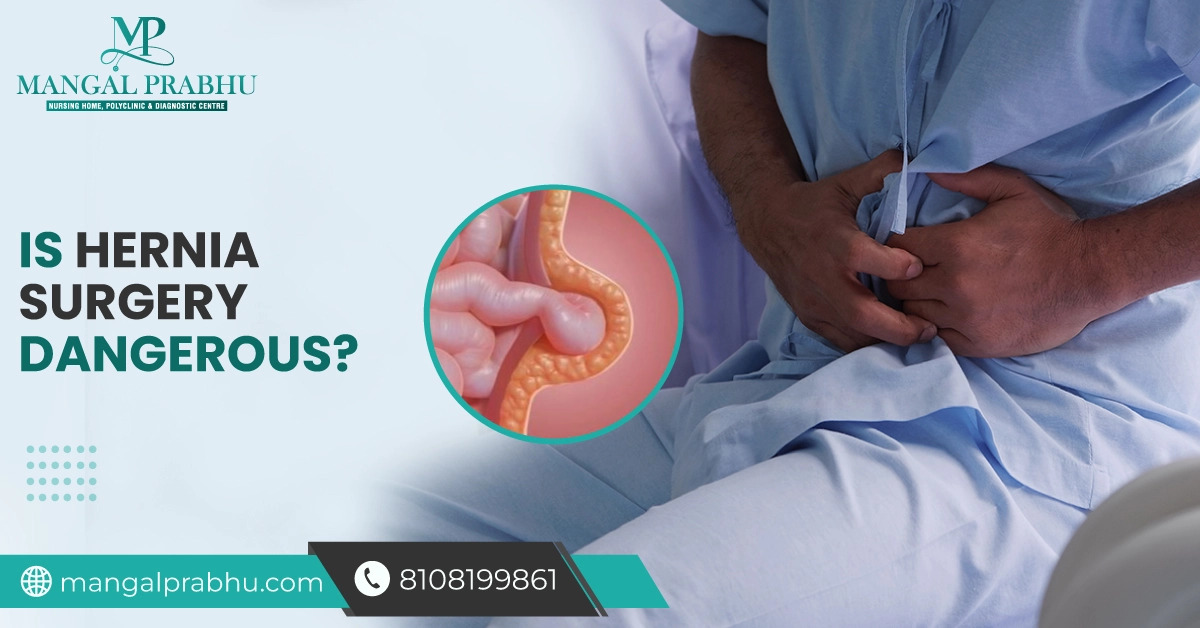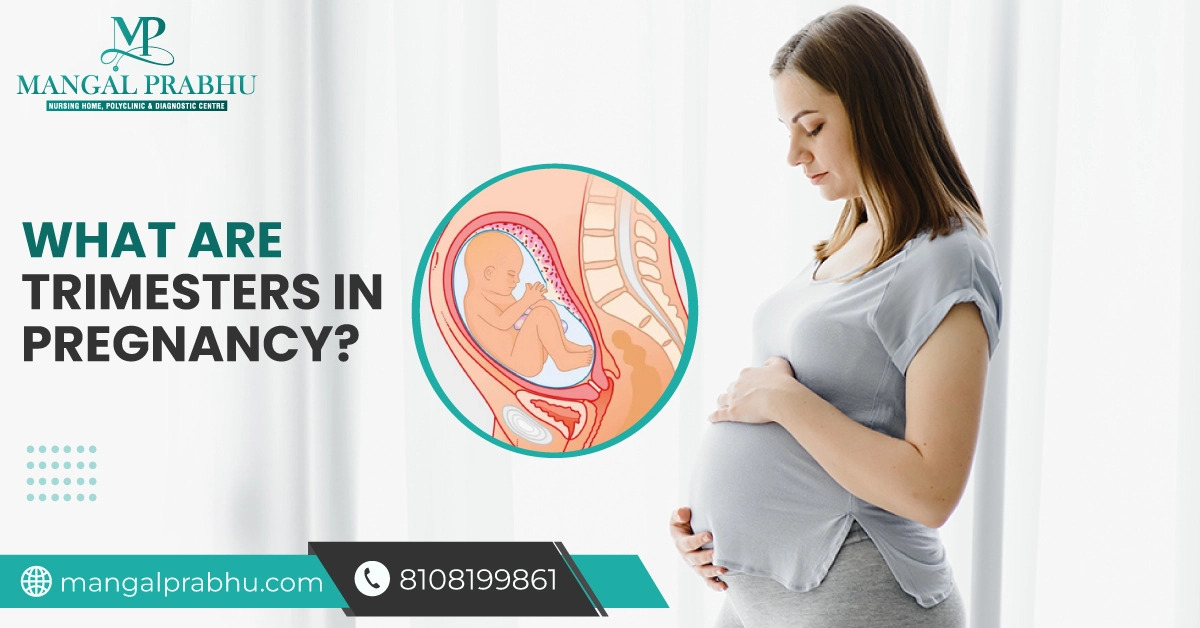
Breast Cancer Stage 1 Symptoms & Treatment Options
Breast cancer is an extensive issue that should have to be dealt with as initially as possible in order to prevent terrible future outcomes. Breast cancer has various stages among its stages. The breast cancer stage has its significance because early detection of breast cancer can make a whole lot of difference.
What is Breast Cancer Stage 1?
Breast cancer stage 1 is the starting stage of the disease; it is set apart in the presence of cancerous cells, which can be in the breast tissues or nearby lymph nodes. Cancer Specialists in Navi Mumbai treat patients with breast cancer with the best care; in the beginning phase, the tumor’s size is usually small; on measuring, it is shown to be not more than 2 centimeters in diameter and does not spread beyond the size of its origin.
Common Symptoms of Breast Cancer Stage 1
It is possible that the symptoms of stage one breast cancer can not be noticed as it is too small. However, there still are changes that can be noticeable; these include the presence of a lump or mass in the breast, a change in breast size or shape, nipple discharge(other than breast milk), breast skin changes like redness, puckering, dimpling and continuous breast pain. It is crucial to understand that these changes can be an indication of an early stage of breast cancer. If you face any of these symptoms, then you need to visit a healthcare professional like Mangal Prabhu Hospital to get an outstanding treatment.
Also Read: Understanding Chemotherapy for Breast Cancer
Diagnosis and Treatment Options for Stage 1 Breast Cancer
Often, Diagnosis is effective for managing breast cancer stage 1. Diagnosis commonly includes a combination of imaging tests like mammograms, ultrasound, MRIs and tissue biopsies to make sure there is any presence of cancerous cells and the stage of the disease.
Treatment for 1st stage cancer can be different to different individuals as it is based on factors like tumor size, overall health and hormone receptor status. The common procedure is surgical intermediation, such as lumpectomy(removal of the tumor and a small margin of surrounding tissue) or mastectomy (removal of the entire breast). Moreover, therapy, like radiation therapy and chemotherapy, is done to find and remove any remaining cells that can lead to breast cancer again. It is important to get treatment from a specialist. Breast Cancer Treatment in Navi Mumbai offerstop-notch handling, for that matter.
Living with Stage 1 Breast Cancer: Lifestyle Changes and Support
The news of diagnosis is indeed a news of fear and uncertainty. Nevertheless, suitable medical treatment and adopting a better lifestyle can help in overall well-being and recovery. It is important to avoid tobacco and alcohol consumption and intake of others that include maintaining a nutritious diet, fruits, vegetables, lean protein and whole grains, involving yourself in physical activity and managing stress through relaxation techniques.
Conclusion
You can visit Mangal Prabhu Hospital if you face any symptoms to get treated as soon as possible; being concerned about the awareness of potential symptoms and having conscious healthcare can help in detecting stage 1 breast cancer that can avoid bigger surgeries in future.

At What Stage of Cancer Is Chemotherapy Used?
Chemotherapy is a combination of medications used to kill cancer cells that are growing aggressively and spreading to your different organs. Chemotherapy treatment in Navi Mumbai is recommended for patients diagnosed with different stages of cancer.
It’s considered an effective treatment option for all types of cancers. The type of chemotherapy your doctor advises depends on the stage, type, and severity of the cancer. They might also factor in your age and health goals to determine the most suitable treatment option.
The Different Stages of Cancer
Chemotherapy can be given for stage I to stage IV cancer patients. Most types of cancer are categorized into four stages, and the diagnosis is done based on how aggressive the cancer cells are, where they have spread, and the patient’s health. For most types, cancer in its first stage is restricted to a specific organ, while the same in stage IV is considered metastatic cancer that has spread to the surrounding organs, probably throughout the body.
Here’s how chemotherapy is planned for different stages of cancer.
Stage 1:
Chemotherapy combined with surgery
Stage 2:
A surgical removal of the malignant tumor and several sessions of chemotherapy.
Stage 3A:
Chemotherapy with surgery or surgery followed by chemotherapy, radiation therapy, and immunotherapy, depending on the location of the cancer. If the cancer can’t be removed surgically, then a combination of chemotherapy, immunotherapy, and radiation therapy is prescribed.
Stage 3B and 3C:
Chemotherapy with multiple rounds of radiation therapy followed by surgery and immunotherapy.
Stage 4:
Chemotherapy, targeted therapy, surgery (if possible), followed by more rounds of chemotherapy.
Types of Chemotherapy Drugs
Chemotherapy drugs are a combination of medications consisting of the following:
i) Alkylating Agents:
These are responsible for destroying the DNA of the replicating cancer cells.
ii) Antimetabolites:
These drugs can destroy cancer cells when they are about to grow out of control in your body. Antimetabolites work for breast, ovarian, and other types of cancer.
iii) Antitumor:
The medication changes the DNA structure of cancer cells, restricting their growth and multiplication inside the body. Mitotic inhibitors are also commonly used to treat cancer cells, but they contain a compound that might destroy healthy cells, as well. So, their use is often limited to certain types of cancers.
Benefits of Chemotherapy
Chemotherapy is the most viable cancer treatment for people diagnosed with cancer in different stages and severity statuses. Here’s how it benefits:
- Restrict the growth of the tumor or shrink its size to make surgical removal of the cancer possible
- Prevent the cancer cells from dividing
- Reduces the risk of relapse
Potential Side Effects
Oncologists in Navi Mumbai recommend chemotherapy after considering your age, size, type of cancer, and your health. Before you choose this treatment, know that it comes with side effects. These may vary depending on the chemo drugs used, but some common side effects found in most patients include:
- Fatigue
- Nausea and vomiting
- Diarrhea
- Hair loss
- Mouth sores
- Loss of appetite
- Anemia
- Weakness in muscles
Schedule an appointment with your healthcare to discuss the most suitable chemotherapy option, the length of the treatment, and the risks.

Is Hernia Surgery Dangerous?
What is Hernia Surgery?
Hernias is a condition where an organ or tissue pushes via a weakness in the muscle or connective tissue. Even though hernias can be helped with a change in lifestyle, the surgical remedy is occasionally important, mainly when it causes excessive aches and starts to intervene with everyday existence.
Types of Hernias and Their Risks
There is a huge style of hernia that includes femoral, inguinal, umbilical and hiatal hernias. Every individual of hernia has an excellent amount of danger. For instance, inguinal hernia are discovered greater in guys and might cause bowel obstruction if left untreated. On the other hand hiatal hernias can cause acid reflux and other issues in digestion. Nevertheless, the danger of hernia surgery depends on several factors: the form of hernia, the affected person’s fitness, and the surgical approach that is utilized in surgery. Mangal Prabhu Hospital provides treatment for hernia.
Safety Measures and Advances in Hernia Surgery
The improvement in scientific technology has stepped forward the protection of hernia surgery in the past few years, which has hindered the threat to an exquisite volume. Small and brief strategies consisting of laparoscopic and robot-assisted surgical operation have appreciably reduced the threat of headaches and feature also shortened the recovery time in contrast to conventional open surgical operation. Hernia Treatment in Navi Mumbai deals with sufferers with hernia and presents them with an efficient remedy. Moreover, Surgeons now have a higher right of entry to imaging generation and surgical instruments, permitting them to provide particular and powerful remedies for hernias.
Also Read: Symptoms Of Hernia In Male
Success Rates and Recovery Post-Surgery
In preferred, hernias surgical operation has an extra fee of success than failure; it facilitates in relieving the ache of patients and their symptoms and also reduces the chance of hernias recurrence. The restoration time after the surgical procedure varies depending on the sort of surgery executed and the character affected person. Still, usually, patients return every day for a few weeks after the surgical procedure. Patients must comply with the publish-surgery instructions like averting lifting heavy stuff and increasing bodily hobbies; following those can help and ensure great healing.
Common Concerns and Misconceptions about Hernia Surgery
Despite the good effectiveness of hernia surgery, there are nonetheless common things that should be handled and misconceptions approximately hernia surgical treatment. A large variety of people fear the hazard of infections, bleeding, or nerve damage, while others consider the possibility of recurrence of the hernia. These dangers are a gift with each surgical procedure. Still, they are distinctly low, especially while carried out by means of a professional healthcare professional, including a Hernia Surgeon in Navi Mumbai with a specialized clinical facility.
Conclusion
The conclusion is that common hernia surgical treatment is safe and effective to a notable degree for treating hernias and relieving pain and its various signs. The development in medical generation and surgical techniques is a major key that enables a lot in decreasing the danger involved in traditional open surgical treatment. By knowing the impact and protection measures and development in surgical procedures, patients need to make decisions about their treatment options; in case you are looking for a treatment option, then you definitely need to visit Mangal Prabhu Hospital as they provide a notable remedy.

What are Trimesters in Pregnancy?
What are Trimesters in Pregnancy?
Trimester is a journey of pregnancy. The concept of trimesters acts as a way to guide through the changes and growth in pregnancy. It is the ninth month of the journey, which is divided into three phases, each lasting for three months. If you are looking for a place to help you through trimesters, then you should visit Mangal Prabhu Hospital.
What Happens During Each Trimester?
i) The First Trimester
The first trimester starts from idea to week 12. In that time, an inspiring transformation takes place wherein a fertilized egg implants itself into the uterine lining, constantly dividing and forming the embryo. In this era, the primary organs and structures start to develop in infants.
ii) The Second Trimester
This continues after the first trimester, which is from the 13th week to 27 weeks. The second trimester brings a sense of remedy to maximum moms as early signs and symptoms of being pregnant, like vomiting, lessen. There is a massive change that is visible, such as the visibility of the baby’s bump. Energy levels in women typically increase, and they often experience a newfound sense of vitality.
iii) The Third Trimester
The third trimester is the last. It lasts from week 28 until birth; during the third trimester, the mother goes through remarkable changes. The baby gains weight in this period, due to which the mother may face little discomfort in her organs and joints due to the pressure of the baby.
Also Read: When to Consult a Doctor During Pregnancy?
Common Symptoms and Changes During Each Trimester
Every trimester has its significant changes and symptoms. For example, fatigue, morning sickness, and breast tenderness are common in the first trimester, whereas heartburn, back pain and swelling may arise later on.
Tips for Maintaining a Healthy Pregnancy During Each Trimester
Regularly taking a look at healthcare carriers and heading off harmful substances like tobacco, alcohol, and junk meals are important and also vital for a wholesome pregnancy. It is essential to have healthy and balanced nutritious food, work often, stay hydrated and get the proper treatment for the baby to be wholesome. Pregnancy Care Hospital in Navi Mumbai Provides a healthy diet and a suitable amount of food that a mother should take; they also provide healthcare for mothers. Pregnancy Care Hospital in Navi Mumbai Provides a healthy diet and a suitable amount of food that a mother should take; they also provide healthcare for mothers.
Preparing For labor and Delivery in Each Trimester
As the date of delivery comes closer, it is important to be prepared for the delivery and labor. This involves creating a birth plan, attending childbirth classes and grasping pain management techniques. You should visit an Obstetrician in Navi Mumbai as they provide labor and proper planning for the delivery of the baby.
Conclusion
Trimesters in pregnancy show a pathway for excited mothers to understand and go correctly through this transformative journey of bringing new life into the world. Mangal Prabhu Hospital Treats and gives a healthy pregnancy plan to the mothers. Each phase of the trimester brings joy and challenges for the mother. By having healthy pregnancy plans and self-care, women can go on this journey with confidence.

Celebrate Motherhood with Our Special Maternity Care and Delivery Package Offer!
Are you excited? It’s a feeling of excitement as you get ready the welcome of a new family member to your family. We at Mangal Prabhu Hospital, we recognize the significance of this moment and try for to create a journey that is memorable and enjoyable as we can.
We are pleased to announce the exclusive Stree Sehat Abhiyan service which is a unique maternity care and delivery package that is designed to provide you with peace of mind through this crucial period in your journey. Our aim is to provide excellent care, without the expense of excessive hospital expenses.
When you make your delivery registered with us now you will gain access to a wealth of advantages:
- The ANC Checkup and ANC Profile: A regular antenatal checkup is vital to ensure an uninvolved pregnancy. Benefit from our free ANC checkup and profile to check your health as well as that of your baby.
- Prices at Specially Discounted on Deliveries Packages: Our belief is that the best medical care for pregnant women should be available to everyone. Get special offers on all of our delivery services, specifically designed to meet your individual requirements.
- Free Consultation with a Gynecologist: Our expert gynecologists in navi mumbai are available to answer any questions that you may have. You can avail a consultation for free in which you can discuss pregnancy concerns, birth preferences and postnatal treatment.
- CBC & TT Injection: Your health and security are our top priority. Get the vital CBC tests as well as TT injections as part of our complete maternity health package.
Deliveries starting at just the price of Rs. 28,125, there’s not the right time to get started on this amazing trip with us. However, hurry up – this offer is only valid from the 1st march to 31st march 2024.
Don’t let financial concerns overshadow the joy of expecting a baby. Rely on Mangal Prabhu Hospital to provide the support and care you need, at every step of the process. Make an appointment today to feel the benefits!

Symptoms Of Hernia In Male
I. Introduction
This condition can develop in various parts of the body, but it commonly occurs in the abdomen or groin area. According to Mangal Prabhu Hospital, recognizing the symptoms of hernia in males is crucial for several reasons. Firstly, timely identification allows for prompt medical intervention, which can prevent complications and alleviate discomfort.
Hernia occurs when an organ or fatty tissue protrudes through a weak spot or tear in the surrounding muscle or connective tissue. Additionally, untreated hernias can lead to more serious complications, making early detection essential for optimal outcomes. Here, you can delve into the various symptoms of hernia in males.
II. Common Symptoms of Hernia in Males
i) Bulge or swelling in the groin or scrotum:
One of the most prominent signs of a hernia in males is a visible bulge or swelling in the groin or scrotum area. This bulge may become more noticeable when standing, coughing, or straining.
ii) Pain or discomfort in the affected area:
Hernias can cause varying degrees of pain or discomfort, ranging from mild to severe. This discomfort may worsen with physical activity or prolonged periods of standing.
iii) Heaviness or pressure sensation:
Some individuals with hernias may experience a sensation of heaviness or pressure in the affected area, particularly during physical exertion or lifting heavy objects.
iv) Difficulty or pain during physical activities:
Engaging in physical activities such as lifting, bending, or exercising may exacerbate hernia symptoms, leading to increased discomfort or pain.
III. Less Common Symptoms of Hernia in Males
While the aforementioned symptoms are more prevalent, hernias can also manifest through less common signs, including:
a) Nausea or vomiting:
In some cases, hernias may cause nausea or vomiting, especially if the protruding organ or tissue becomes obstructed.
b) Changes in bowel movements:
Hernias affecting the abdominal region can sometimes lead to changes in bowel movements, such as constipation or difficulty passing stool.
c) Urinary difficulties:
Inguinal hernias, which occur in the groin area, may cause urinary difficulties such as frequent urination or difficulty emptying the bladder.
IV. When to Seek Medical Attention
If you experience any of the symptoms mentioned above, it’s crucial to consult a healthcare professional like Hernia Surgeon in Navi Mumbai promptly. Delaying medical evaluation and treatment can increase the risk of complications associated with hernias, such as strangulation or obstruction of the protruding tissue.
V. Treatment Options
- Surgical interventions: Repairing weakened muscles or tissues through surgical procedures.
- Non-surgical approaches: Utilizing methods like wearing supportive garments or trusses.
- Lifestyle modifications for prevention: Implementing habits such as proper lifting techniques and maintaining a healthy weight to reduce the risk of hernia development.
VI. Conclusion
Recognizing the symptoms of hernia in males is essential for early diagnosis and prompt intervention. By being aware of the common signs and seeking timely medical attention, individuals can effectively manage hernias and minimize the risk of complications.
If you’re experiencing any symptoms suggestive of a hernia, don’t hesitate to contact Mangal Prabhu Hospital for expert evaluation and hernia treatment in Navi Mumbai. Your health and well-being are our top priorities.

Understanding Female Urethral Stricture
The urethra is an essential part of the body for passing urine outside. However, sometimes, tranquil flow may obstructed due to sudden blockades or a stricture. Though less common in women, this formidable foe poses a challenge to the natural passage of urine, sending ripples of discomfort and frustration. However, an individual must consider the best urethral stricture treatment in Navi Mumbai from Mangal Prabhu Hospital to quickly get through all the difficulties in urination and other associated complications.
Causes of Female Urethral Stricture
A) Common causes
While childbirth can contribute to female urethral stricture, it’s not the only major cause of urethral stricture in women. Surgeries, infections like UTI, STI, trauma, and even radiation therapy can leave their mark, leading to scar tissue and a narrowed urethra. And unlike men, where strictures are more common, FUS often gets overlooked in women, leaving them suffering in silence. Other causes, including falls, accidents, and other injuries, can damage the delicate tissues of the urethra, laying the groundwork for future stricture development. And for cancer survivors who’ve undergone radiation therapy in the pelvic region, the potential for FUS becomes an additional concern, a hidden consequence of their fight for health.
B) Risk factors
- Previous Urethral Surgery: Past procedures may leave a lasting imprint, predisposing individuals to future strictures.
- Chronic Inflammation or Infection: Those battling recurrent UTIs or chronic inflammatory conditions may find themselves on a collision course with urethral strictures.
Also Read: What Does a Urologist Do?
Symptoms and Diagnosis
a) Signs and symptoms
- Initiating Urinary discomfort and difficulty: Strictures can make it challenging to kickstart urination.
- Stream Struggles: A gentle stream reduced to a mere trickle, a narrowed urethra can disrupt the flow and cause a weak and intermittent urine stream.
- Burning Sensation: an individual may feel the fiery Sensation of passing urine, signalling irritation along the urethral pathway.
- UTIs: Recurring signs of urinary tract infections are often triggered by the stagnation caused by strictures.
- Urinary Retention: Like a clogged drain, complete blockage leads to urinary retention or a harbinger of discomfort.
b) Diagnostic tests and procedures
- Uroflowmetry: it helps in monitoring the rate and volume of urine flow to uncover obstructions.
- Cystoscopy: It helps in diagnosing the depth of the urethral and visualizing strictures and hidden abnormalities.
- Urethral Dilation: A gentle stretch to widen the narrow path to relieve symptoms.
Treatment Options
i) Non-surgical approaches
- Stretching strategies or urethral dilation: A Urologist in Navi Mumbai uses a unique instrument for gradual dilation to clear the path and restore the flow.
- Medication: It helps in fighting inflammation and infections head-on, empowering the body’s defences to ease symptoms.
- Self-Care: It helps empower patients with the skills to navigate the narrow passage, ensuring regular clearance and comfort.
ii) Surgical interventions
Surgical interventions like urethroplasty, urethral stent placement and laser therapy help in removing issues and offering better passage of urine.
Conclusion
Female urethral stricture is a rare yet trouble-making issue; thus, gaining knowledge and consulting with the best doctor may help to eliminate the risk. So, it would be best for an individual to consult the best urologist at Mangal Prabhu Hospital to get the best possible treatment without any hassle.

Types of Cancer Treatment
Cancer is caused due to uncontrolled cellular growth due to various factors. Besides the severity and complications associated with cancer, this condition is also hard to diagnose and treat. Cancer treatment helps in treating and preventing further risk of different types of cancers. However, if left unchecked, this rebel cell and its cohorts could wreak havoc on the overall well-being. Thus, it would be best to visit the best Cancer Hospital in Navi Mumbai like Mangal Prabhu to efficiently treat cancer and eliminate the risk of its occurrence. The different types of cancer treatment plans treat various cancer problems that help a patient effectively get through issues and improve strength and mobility. Therefore, this guide provides insight into different types of cancer treatment.
1) Surgery
With surgical precision, surgeons infiltrate cancerous cells, gathering intelligence on the cancer’s stage and extent, guiding the army of treatments in their strategic assault. Every surgeon is unique, and surgery tailors its approach to each individual, adapting its tactics to the specific challenges presented by the terrain of each patient’s body.
2) Radiation Therapy
In radiation therapy beams of energy pierce through the darkness, targeting cancer cells with unerring accuracy. It is the best way of destruction, where DNA is shattered, and cancer’s grip is loosened. An individual may also feel fatigue and burns, but all these things are worth removing cancer cell by cell.
3) Chemotherapy
In the realm of chemotherapy, drugs surge through the veins, laying waste to cancer’s strongholds. It helps in reducing the size of the tumour and also reduces the number of cancerous cells in the body which help in reducing the spread of this issue.
Also Read: How Chemotherapy Is Done?
4) Immunotherapy
The body has its defences that help in the fight against the cancerous cell. Immunotherapy strategy helps in improving the defence ability to fight against cancer. And in the wake of battle, there’s not just victory but resilience—a strengthened immune system, primed to defend against future assaults.
5) Targeted Therapy
Doctors mark molecules for destruction, pathways blocked, and vulnerabilities exploited. By targeting specific vulnerabilities in cancer cells, these experts sabotage their growth and cripple their defences. Targeted treatment zeroes in on specific targets (molecules) in cancer cells. These targets play a role in how cancer cells grow and survive. Using these targets, the drug disables the cancer cells so they cannot spread.
6) Hormone Therapy
Hormone therapy is like a precision strike against cancers that rely on hormones to grow and spread, such as certain types found in the breast, prostate, and ovaries. It’s the strategic move that either removes or blocks the body’s natural hormone production, essentially cutting off the fuel supply for cancer growth. A Cancer Specialist in Navi Mumbai at Mangal Prabhu might opt for a bold manoeuvre, surgically removing hormone-producing organs like the ovaries or testes.
Conclusion
In the vast canvas of battling cancer, each treatment method offers its way through the tapestry of human perseverance. From the surgical procedure to the pinpoint accuracy of targeted therapies, healthcare providers march forward together in the pursuit of triumph.

Difference Between Gynecologist and Obstetrician
I. Introduction
Women’s reproductive health is like the conductor orchestrating their participation in the workforce. Reproductive health services are the catalysts propelling women towards empowerment and providing healthy and safe well-being. In the grand journey into the realm of women’s health, an individual needs to unravel the intricacies of the contributed trio: OB/GYN, obstetrics, and gynecology. Although the terms might sound like a medical alphabet jumble, each holds a unique role in addressing the varied health needs of women. Get ready for an immersive journey into the domains of welcoming new life and safeguarding the enduring reproductive health of women with the best Maternity Hospital in Navi Mumbai like Mangal Prabhu Hospital.
II. What is a Gynecologist?
Gynecologists emerge from their educational crucible with a keen sense of preventive care, diagnostic skills, and the power to combat reproductive disorders like cancers and pelvic perils. Armed with an arsenal of knowledge on family planning and contraception, they’re the trusty sidekicks ensuring women’s reproductive well-being through every twist and turn. They are warriors against issues like irregular menstruation, infections, cancers, and a plethora of other reproductive challenges. Regular screenings and timely interventions with gynecologists ensure that potential threats are detected early, boosting the chances of triumphant recovery.
III. What is an Obstetrician?
With a similar origin story of education and residency, these conductors specialize in the spectacle of pregnancy and childbirth. They empower women to make informed choices, orchestrating the symphony of when and how to expand their families. Obstetricians dazzle in the realm of high-stakes pregnancies, fetal crescendos, and the dramatic outcome of childbirth. But their role doesn’t stop there; they continue the postpartum encore, ensuring the well-being of both mother and newborn.
Also Read: When to Consult a Doctor During Pregnancy?
IV. Similarities and Differences
Both gynecologists and obstetricians join forces in championing the cause of regular check-ups. Gynecologists mostly provide treatment for various reproductive issues and allow routine screenings, while obstetricians emphasize the importance of prenatal harmonies for the health of both mother and baby. Both specializations help ensure women stay in sync with their bodies at every stage. This dynamic duo ensures that women receive the specialized care they deserve, adapting their powers to the unique needs of each stage. In cases of complications, both specializations team-up becomes even more pronounced for their patients.
V. When to See a Gynecologist vs. Obstetrician
When you suffer from any reproductive systems enigmas, such as ovarian conundrums, uterine puzzles, endometriosis mysteries, menstrual issues, or sexual health, or you need consultation for contraceptives, then find solutions with a Gynecologist in Navi Mumbai at Mangal Prabhu Hospital. For those venturing into fertility expeditions or seeking assistance with family planning strategies, postpartum pampering, labor, and delivery, your obstetrician is the guide offering evaluations, fertility treatments, and a roadmap to your desired destination.
VI. Conclusion
By understanding the nuances of their roles, women can embark on a proactive journey towards well-being, armed with knowledge and help in taking steps to manage their reproductive health at every stage of life. Whether it’s a gynecological escapade or an obstetrical odyssey, rest assured that these healthcare providers stand ready to empower and uplift every woman, turning each chapter into a tale of triumph and resilience.

What Not to Do After ACL Surgery?
I. Introduction
The ACL is the knee’s guardian, ensuring stability and support. When this guardian gets injured, ACL surgery swoops in to save the day, restoring function and preventing long-term outcomes for the patient. ACL injury can also develop life-threatening and immobility issues, thus this surgical procedure helps in eliminating these risks. ACL surgery also helps in improving stability, reducing the risk of future knee injuries, reducing pain, and swelling, and preventing chronic issues. Thus an individual must consult with the best ACL reconstruction doctors in Navi Mumbai at Mangal Prabhu Hospital to avoid risk associated with ACL injury.
II. Physical Activities to Avoid
After ACL surgery an individual needs to stay very conscious about their knee as straining the joint during this period may hinder the healing process. Thus, an individual must hold off on running, jumping, and jogging for a certain period; there’ll be plenty of time for that triumphant return later. These high-impact activities can stress the healing ligament. Give your knee rest, advance treatment, and avoid high-contact sports until it gets back to its full strength. It would also be best to avoid heavy weightlifting and intense exercise that might transform your knee’s healing period into an injury period. However, you can also adopt lighter weights and controlled strength training to stay on the track.
III. Neglecting Rehabilitation Exercises
Besides rest and avoiding physical activities, an individual also needs to consider various things during their recovery period after ACL surgery. Just like medicines are important for quick recovery, rehabilitation programs also act as a knee training camp. Rehabilitation exercise is a power move, aimed at defeating muscle atrophy and joint instability. Each exercise helps in improving the knee’s efficiency and acts as a shield for various complications. Rehabilitation program as a personal trainer, customizing workouts for your knee’s unique needs and progress. Skipping these customized workouts may hinder progress, slow down, and setbacks become more likely. Neglecting rehab also weakens the knee’s defense against the forces of delayed recovery.
Also Read: How to Sleep After ACL Surgery?
IV. Ignoring Pain and Swelling
Pain and swelling are warning signs of complications associated with knees. They’re signals from your body, telling you things are in motion. Keep a vigilant eye, and if the pain and swelling stay persistent and intense, then let your healthcare provider know immediately so they can offer the right treatment and avoid the risk of complications.
V. Returning to Normal Activities Too Soon
Impatience during your recovery period may lead to severe complications. The knee needs proper rest and treatment for a certain period after ACL reconstruction surgery in Navi Mumbai. Returning to normal activities too soon increases the risk of further injuries, infection, delayed recovery, and other long-term issues. Be a wise patient – follow the timeline, resist the urge, and let your knee heal properly, so you can go back to your normal activities without any hassle.
VII. Conclusion
During your ACL surgery recovery, each step is crucial. Evade the high-impact exercise, adopt the rehab exercises, keep an eye on the pain and swelling, and, most importantly, let your knee take its time to heal so you can get a better recovery. Patience and commitment are essential, ensuring a triumphant return to normalcy. Always consult with the healthcare provider at Mangal Prabhu Hospital for personalized guidance throughout this epic recovery journey.
